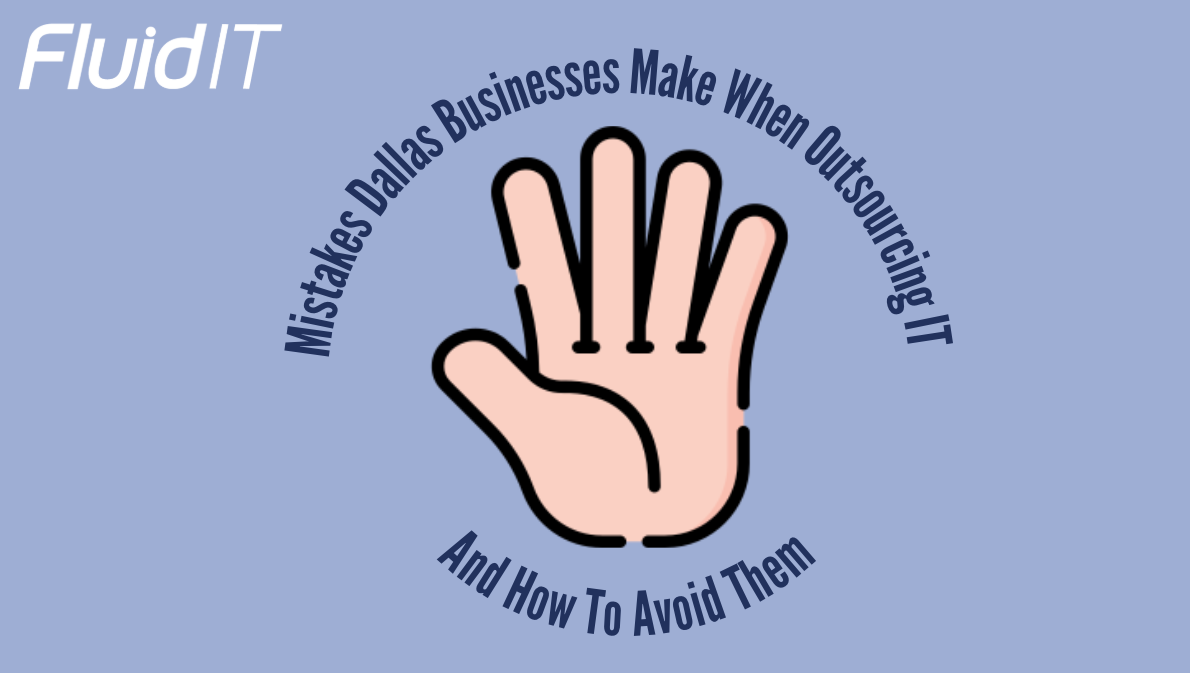How IT Support in DFW Can Help Prevent Shadow IT Risks
Shadow IT is one of the most overlooked cybersecurity risks facing businesses today. It refers to the use of unauthorized applications, devices, or...
3 min read
 Wade Yeaman
:
Nov 13, 2023 12:57:41 PM
Wade Yeaman
:
Nov 13, 2023 12:57:41 PM

Welcome to the final chapter of our insightful series, "Digital Evolution: 5 Key Tech Trends for Your Business." We've saved the most dynamic and controversial trend for last: Artificial Intelligence (AI). Join us as we demystify AI, a tool both exhilarating and intimidating, that's rewriting the rules of business and daily life.
AI has journeyed from the fringes to the core of our everyday experiences. If you’ve ever asked Alexa to play your favorite song, used Siri to set a reminder, or relied on Google Assistant for the weather forecast, you’ve interacted with AI. These instances reflect just how AI has become an integral part of our personal lives.
As the owner of Fluid IT, my engagement with AI spans from the practical to the experimental. Here are the AI tools that I, and likely you, interact with regularly:
Our technical staff incorporate AI like ChatGPT into their workflow to speed up task completion and enhance service quality. The fear that AI might replace human jobs is palpable but often misplaced. AI has the potential to eliminate certain roles, especially in areas with predictable, script-based solutions. Yet, my belief is strong that AI serves as an invaluable asset rather than a threat when used wisely.
For instance, AI helps me avoid grammatical faux pas, and it aids our technical team in streamlining customer support. This symbiosis between human and artificial intelligence is where the true power of AI lies — in elevating our human potential, not diminishing it.
As we delve into the ethical implications of artificial intelligence (AI), we must balance the scales of innovation with the weights of responsibility. AI technology has reached a pivotal stage where its applications are as widespread as they are impactful, influencing every facet of society. From automating simple tasks to executing complex decisions, AI has the potential to benefit humanity significantly. However, its capacity for misuse raises serious ethical concerns that must be addressed.
With the power to reshape our world comes the immense responsibility to guide AI's influence responsibly. The surge in AI's capabilities has led to its adoption across various sectors, from seemingly harmless daily tasks to more complex uses that skirt ethical lines. The possibility of AI being misused for fraudulent activities, like voice-spoofing in phone scams, or in sophisticated cybersecurity attacks, presents a stark reminder of the need for vigilance.
The conversation takes a particularly serious turn when considering AI's role in education. We now see a trend where teachers and students use AI to craft assignments and research papers. This raises critical questions about the role of AI in learning and the development of critical thinking skills. How we govern the use of AI by those who have grown up with this technology at their fingertips will be pivotal in shaping an ethical framework for its widespread application.
As we stand at the crossroads of innovation and regulation, the future of AI governance appears both challenging and essential. Creating a balanced approach to AI use, one that encourages its benefits while curbing potential misuse, is not just a technical necessity but a moral imperative. Ensuring that AI evolves in a manner that reflects our societal values and norms is a complex task, requiring a concerted effort from policymakers, educators, and technology leaders alike.
Our journey through the "Digital Evolution: 5 Key Tech Trends for Your Business" reaches its culmination with this dive into the fascinating realm of AI. From redefining the workplace to reshaping cybersecurity, from integrating IT for business leverage to adopting a user-centric service model, we've aimed to provide a strategic roadmap for harnessing these trends in your business landscape.
AI marks a significant milestone in our technological journey, symbolizing the vast potential of modern innovation. It's about recognizing the emerging role of AI and considering its implications with careful thought. As technology progresses rapidly, the landscape of growth and innovation expands, with Fluid IT keenly observing these changes.
As this series comes to a close, we invite you to stay connected with Fluid IT for your IT needs. Whether you’re aiming to enhance your operations, fortify your digital assets, or simply stay informed about the latest technological trends, we are here to support you. Our team is dedicated to providing insights and updates on these evolving technologies, helping you stay aware and prepared.
Thank you for being part of this enlightening exploration. As we witness the unfolding of the tech future, staying informed and proactive is key. Partner with Fluid IT as we navigate these exciting tech trends together. Join us in embracing the digital evolution, where our commitment to knowledge and your business aspirations converge.
Digital Evolution: 5 Key Tech Trends for Your Business:
1. Digital Evolution: A Hybrid Hybrid Workforce — Dive into the world of the hybrid hybrid workforce and discover how businesses are adapting to the changing landscape of work.
2. Cybersecurity: From IT Geeks to the Boardroom — Learn about the evolving role of cybersecurity and how it has transitioned from being solely an IT concern to a boardroom-level imperative.
3. Embedding IT for Business Transformation — Delve into the critical role of IT business integration and how this change impacts business success.
4. The User-Centric Approach: Shaping the Future of IT Services — Explore the paradigm shift towards a user-centric approach in IT services and its profound impact on shaping the future of business technology.

Shadow IT is one of the most overlooked cybersecurity risks facing businesses today. It refers to the use of unauthorized applications, devices, or...

Outsourcing IT services can be a smart strategy for Dallas-Fort Worth businesses looking to optimize efficiency, reduce costs, and access specialized...

As your business expands, technology becomes both a powerful driver and a potential bottleneck. Many Dallas companies start with in-house or ad-hoc...